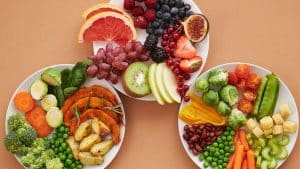When it comes to Muscle vs Fat, losing weight isn’t just about the number on the scale. Here’s why understanding the difference between muscle and fat is key to transforming your body—and your mindset.
⚖️ Introduction
You’ve been eating right, working out, and maybe even stepping on the scale daily… but the number isn’t moving like you hoped. It might be a classic Muscle vs Fat scenario.
Sound familiar? You’re not alone.
Many people pursuing health—even in faith-driven fitness communities—get discouraged when weight loss seems slow. But here’s the truth: Weight loss ≠ fat loss. And if you’re building muscle while burning fat, the scale can be misleading.
In this FaithNFIT guide, we’ll explain the real difference between muscle vs fat, how it affects your weight loss journey, and how to focus on what really matters: body composition.
🔍 Muscle vs Fat: What’s the Difference?
| Muscle | Fat | |
|---|---|---|
| Density | Denser, takes up less space | Lighter, takes up more space |
| Metabolic effect | Burns calories even at rest | Stores energy |
| Weight | Heavier per volume | Lighter per volume |
| Appearance | Lean, toned look | Softer, rounder shape |
💡 Takeaway: You can look smaller and tighter while weighing the same — or more — if you’re building muscle and losing fat.
📉 Why the Scale Can Be Misleading
If you’re strength training and eating well, you’re likely gaining muscle while losing fat. This Muscle vs Fat dynamic means your weight might stay the same even though your body is transforming.
Here’s what matters more than the number on the scale:
- Inches lost
- Body fat percentage
- Muscle mass gained
- Progress photos
- Strength and endurance increases
📖 FaithNFIT Truth: Your worth isn’t measured by a number. Stewardship of your health is about obedience, not obsession.
📊 Real-Life Example
Let’s say two women both weigh 160 lbs:
- Woman A has 35% body fat
- Woman B has 22% body fat
Even though they weigh the same, Woman B will look leaner, more toned, and more athletic — all because of body composition, highlighting the essential Muscle vs Fat consideration.
🧠 How to Track Body Composition Instead of Weight
✅ Use These Tools:
- Body tape measure (waist, hips, thighs)
- Progress photos (weekly, same lighting/clothing)
- Body fat calipers or smart scales (with consistent time of day)
- Strength performance (are you lifting heavier or doing more reps?)
✅ Shift Your Mindset:
- Focus on fat loss, not just weight loss
- Celebrate strength, energy, and endurance gains
- Remember: Muscle is metabolically active, fat is not
🏋️ How to Build Muscle While Losing Fat
- Strength train 3–5x/week (full-body or split routines)
- Eat a moderate calorie deficit (200–400 kcal below maintenance)
- Prioritize protein: 0.8–1.2g per pound of body weight
- Get 7–9 hours of sleep
- Drink plenty of water
- Track non-scale victories (NSVs)
🧘 FaithNFIT Tip: Pair your fitness plan with spiritual check-ins. Growth isn’t just physical — it’s about renewal from the inside out (Romans 12:2).
🙏 FaithNFIT Perspective
Culture may push you to chase skinny, fast fixes, and scale success. But God calls us to pursue wholeness, not perfection, reminding us that Muscle vs Fat is about more than appearance.
By understanding how muscle and fat truly affect your health, you take back control — not for vanity, but for vitality and service.
“You are fearfully and wonderfully made.” – Psalm 139:14
Transform your temple. Honor the process. Trust the journey.
✅ Key Takeaways
- Muscle takes up less space than fat, reflecting the difference discussed in Muscle vs Fat
- Focus on body composition, not just pounds lost
- Track progress with photos, measurements, and strength metrics
- Build muscle while losing fat for lasting transformation
- A scale cannot measure your faith, effort, or purpose
📎 Latest Articles:
- How Massage Therapy Enhances Fitness Recovery and Performance
- Stay Organized and Stylish: Top Laptop Bags for Busy Professionals Who Love Fitness
- 10 Diet Myths That Destroy Fat Loss
- Why God and Goals Go Together: Creating a Purpose-Driven Health Journey
- The Micronutrient Mistake: Why Most Diets Fail Without Them
Subscribe now and get a 14-day free trial workout app for iPhone users.





